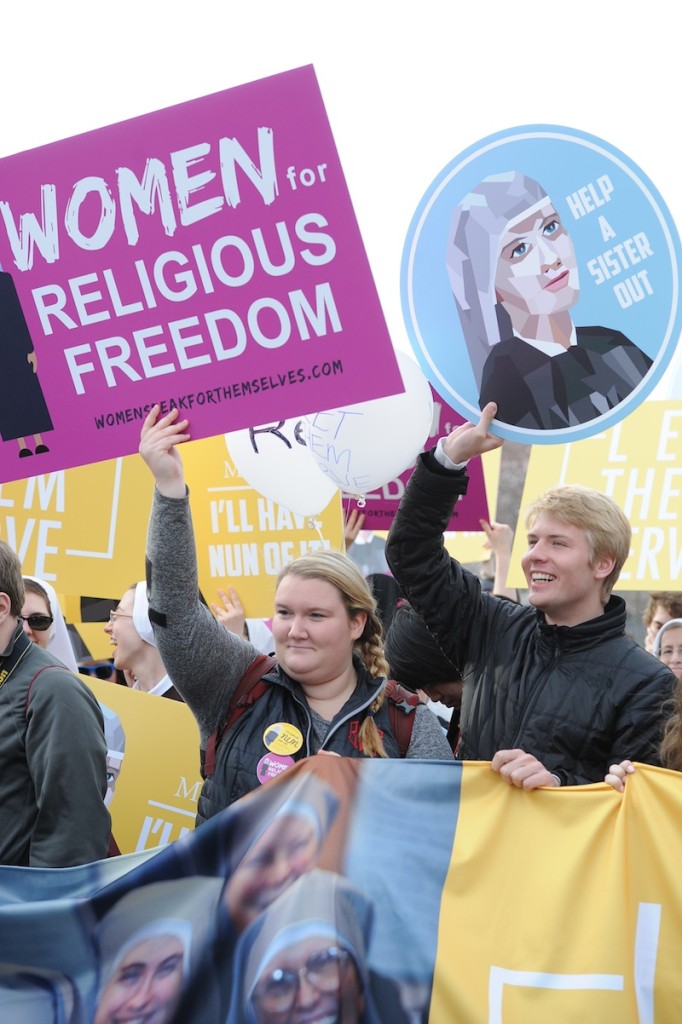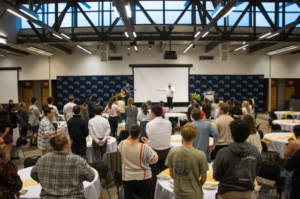University Participates in Supreme Court Hearing

By Vincent Ottomanelli
Last week on March 23rd oral arguments were presented before the Supreme Court concerning a lawsuit by Little Sisters of the Poor. The lawsuit is about the employer mandate for the provision of contraceptives under the Patient Protection and Affordable Care Act, or Obamacare.
The law requires that most employers provide healthcare, including free contraceptives. The law does include an exception for religious organizations, which permits an organization to submit a form detailing the exemption, which would result in the coverage being provided at no cost to the objecting organization. Catholic University philosophy student Ari White said that “This case is not about preventing employees from getting access to contraceptives, but it’s about religious organizations being compelled to cooperate with an action they view as wrong”.
Little Sisters of the Poor, along with several other religious organizations, have filed lawsuits against the mandate, citing a violation of the Religious Freedom Restoration Act, as well as the U.S. Constitution. The Religious Freedom Restoration Act reinstated the Sherbert test, which is designed to determine whether a government intrusion into religious practice is in violation of the right to free exercise of religion. The parameters of this test are as follows: if the government places a burden on the free practice of religion, there must be a compelling state interest at stake, and there must be no alternate method of meeting that interest than to violate free exercise as such.
Little Sisters of the Poor is arguing that the government’s mandate for the provision of contraceptives to its employees is in violation of the constitutionally protected right to religious exercise. Catholic University psychology student Ashley Duffoo said that “It’s just another example of the government forcing its hand on religious organizations”.
Furthermore, the “accommodation”, meaning the rule requiring the filing of a form exempting religious organizations from having to provide the coverage directly, causing it to be provided by the insurance company at no additional cost is a violation of this law as well as it constitutes cooperation with evil.
President Garvey offered the following statement on the case: “We are grateful to have been given a fair hearing in front of the Supreme Court today and for the opportunity to present the many ways in which this mandate burdens our right to operate The Catholic University of America and other religious institutions in accord with our deeply held religious beliefs. We await the Court’s decision and look forward to a just resolution to the case”
In Burwell v. Hobby Lobby, the court ruled that the government could not mandate that for-profit, closely held corporations (such as Hobby Lobby Stores, Inc.) must provide contraceptive coverage in the case of religious objection. Noting that this does not hold up against the Sherbert Test, as well as the already existing alternative method for the provision of contraceptive coverage which was only applied to religious nonprofits. As a result of this, employees could have access to contraceptive care through other plans, rather than through the employer plan.
Justice Ginsburg offered the primary dissent, arguing that “Until this litigation, no decision of this Court recognized a for-profit corporation’s qualification for a religious exemption from a generally applicable law, whether under the Free Exercise Clause or RFRA. The absence of such precedent is just what one would expect, for the exercise of religion is characteristic of natural persons, not artificial legal entities.”
Following the Hobby Lobby decision, the court issued an injunction eliminating the prior method which was exclusively for religious non- profits, requiring that they submit a form detailing the exemption, which would allow the coverage to be provided through another plan.







